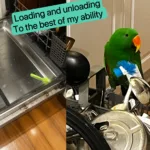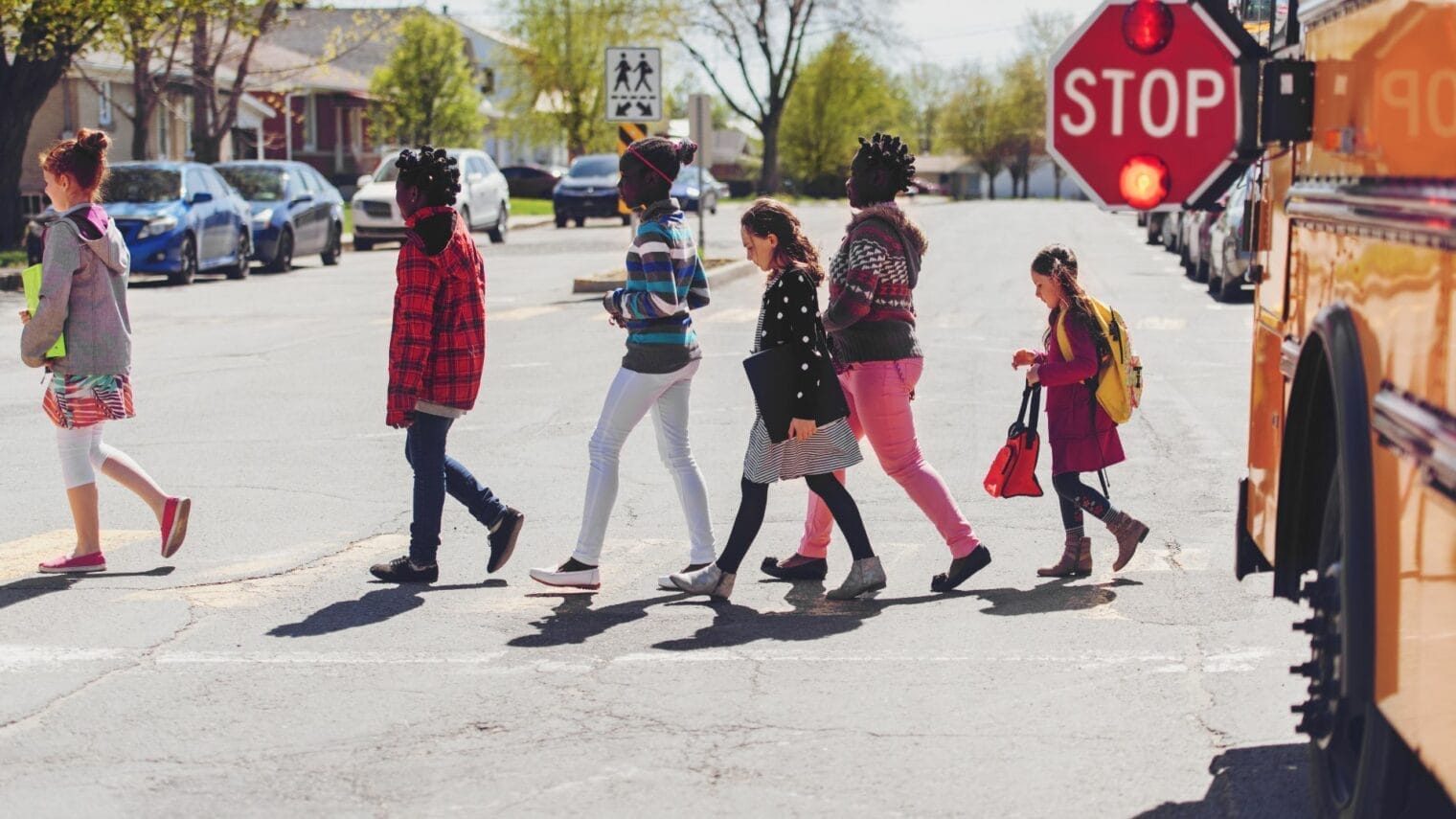Do you ever notice that your kid, cat, dog, or parrot doesn’t want to play with the expensive toys you bought especially for them but prefers commonplace objects that you use daily, like your laptop, cell phone, or report printout? (My kids and pets have killed many keyboards, laptops and phones.)
Children learn more from what you do than what you say. They observe and comprehend your actions only to the best of their ability and physical limitations. I posted a picture of my parrot unloading the dishwasher last week. I must have left his food door unlocked while hectically trying to get to work and herd kids to school one morning. When we returned, he was standing on the dishwasher with utensils he “put away” all over the floor. The following week, he stepped up his dishes duty and put his own toy fork into the dishwasher. Scientists say that medium-sized parrots like mine have the intelligence of five-year-old human children. My bird sees his family taking utensils in and out of the dishwasher. Like humans, parrots are very social and pay close attention to the behavior of their family. But he doesn’t have the capacity to do the job very well either because he’s not:
- Taught to do it properly (You need to put clean and dirty utensils in different places; each clean utensil only belongs to a different slot in the drawers.
- Not mentally or physically able to complete the task

(p.s. Parrot owners, always shut your dishwashers once your bird has advanced to the dishes duty milestone. They WILL destroy your dishwasher and leave you handwashing and waiting for the replacement.)
We all assume what people know, how they feel, and where they’ve been, and as we let go of those assumptions, we are happier and those around us too. I’ve been on a crusade to reduce my kids’ technology use for a while now with mediocre success. I’ve tried every available parental control screen-time monitoring app on iTunes, router-based, and even hardware solutions. My fervor to do what’s best for them as a parent began to create conflicts within our family until one day my daughter said to me, “But mom, you’re always so busy working on the computer or phone.” I didn’t have a satisfactory reply to that.
Each person’s reality is only what they perceive. For as long as they’ve known me, except for the few years I took off, I’d always worked long hours. Our children see us behind screens and try to emulate us. They don’t know or understand what we are working on and do what they’re capable of or what they perceive to be what we’re doing because all they see is their role model or caretaker or most loved person in the world intently focused on a screen and that the screen is important and good. How often have I said, “Mama has a very important call, or I just have to finish answering one more email, and then I’ll help you?” Enough times that I realize it’s hypocritical for me to ask them to be 100% screen free and mindful. Just this recognition has made me more tolerant and happier.
When I’m unplugged, hiking, discovering nature or playing a board game with my kids, they’re not on their screens. (Without their own smartphones, I’ve also made it inconvenient for them to be glued to the screen while on the go. p.s. They do have Apple watches for me to reach them and communicate with their friends, but the tiny watch screen naturally eliminates any desire for browsing. Simply by changing the environments, behaviors improved.)
I’m not proposing that parents all stop working. In addition to the critical importance of curaJOY’s mission to improve families’ emotional wellness, I’ve also fought to build curaJOY as a nonprofit tech startup to pave the path for a healthier balance in the tech sector, away from extreme valuations and unhealthy growth as well as bitter crashes.
This article contains no miracle cure. It reminds us that building our perspective-taking skills is a lifelong journey that shouldn’t stop. Social-emotional skills like perspective-taking help us and those around us become happier.




Leave a Reply